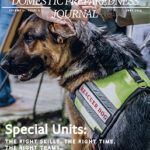Any time a mass-casualty incident occurs, responders must not only save the living but also process the dead. Typical mortuary services include, among other responsibilities, removing and transporting bodies from the incident scene, checking and confirming victimentifications, and notifying surviving family members. Lessons Learned Information Sharing has a wealth of information available on the mortuary services provided during and after many mass-casualty incidents, including The Station nightclub fire almost seven years ago in West Warwick, Rhode Island.
On 20 February 2003, a pyrotechnic show during a concert set fire to the ceiling and walls of The Station nightclub. The ceiling and wall materials were not fireproof, so the fire spread quickly throughout the crowded main room of the nightclub. Because there were only a few exits, there was a rush to and considerable crowding at the main exit, and many people had difficulty escaping the fire.
Police, fire, and EMS (emergency medical services) personnel from 35 state and local agencies in the West Warwick area responded to the fire fairly quickly. Still, out of the approximately 430 people believed to have been in the club at the time of the blaze, 100 died, and 230 others were injured.
Two-Way Radios Needed – Plus an After-Action Report
As part of the standard response, an investigator from the Office of the Medical Examiner (OME), which is responsible for removing bodies from the scene of such incidents, drove to the site about 30 minutes after the fire, unaware of the still mounting casualty numbers. Unfortunately, the OME vehicle did not have a two-way radio installed, so the investigator’s only means of communicating with the on-site responders already at the club was by cellular telephone – however, neither he nor the contracted livery service accompanying him had the telephone numbers of the responders who were needed. The investigator would have been better prepared to approach the scene, obviously, if he had been able to communicate through two-way radio while still on the way to the incident site.
Another problem occurred after the bodies had been removed and transferred to the state morgue – where OME staff members, representatives of the Rhode Island Funeral Directors’ Association, and volunteer dentists spent five daysentifying the dead. After all of the bodies had beenentified, the chief medical examiner released all of the people involved in theentification process.
If the medical examiner had instead had held at least one after-action meeting with everyone who had worked onentifying the bodies, the OME could have developed some valuable lessons learned and used them to provide useful guidelines for volunteers involved in the processing aftermath of future incidents.
Followingentification of the bodies, representatives of the Family Assistance Center (FAC) in the area had to begin the always difficult process of notifying families. Although they delivered the news with compassion and professionalism, many of the FAC staff members participating not only had no clinical training but also possessed very little, if any, experience in making death notifications. The lesson here, therefore, is that, to ensure that each victim’s family receives the consolation and respect it deserves, the political jurisdictions involved should take whatever steps are needed to see that the individuals carrying out the death notifications have the training needed for that task.
Of course, such professional formal training can also help reduce stress on the people who are actually delivering the difficult news. Other family assistance centers may therefore want to at least consider using trained volunteers from local and state funeral directors’ associations to provide the death notifications to the families of victims.
_______________
For additional information on The Station fire, mortuary services, or other emergency-management topics, visit Lessons Learned Information Sharing at www.llis.gov.

Jennifer Smither
Jennifer Smither is the outreach and operations manager for Lessons Learned Information Sharing (LLIS.gov), the Department of Homeland Security/Federal Emergency Management Agency’s national online network of lessons learned, best practices, and innovativeeas for the U.S. homeland security and emergency management communities. She received her bachelor’s degree in English from Florida State University.
- Jennifer Smitherhttps://domesticpreparedness.com/author/jennifer-smither
- Jennifer Smitherhttps://domesticpreparedness.com/author/jennifer-smither
- Jennifer Smitherhttps://domesticpreparedness.com/author/jennifer-smither
- Jennifer Smitherhttps://domesticpreparedness.com/author/jennifer-smither






